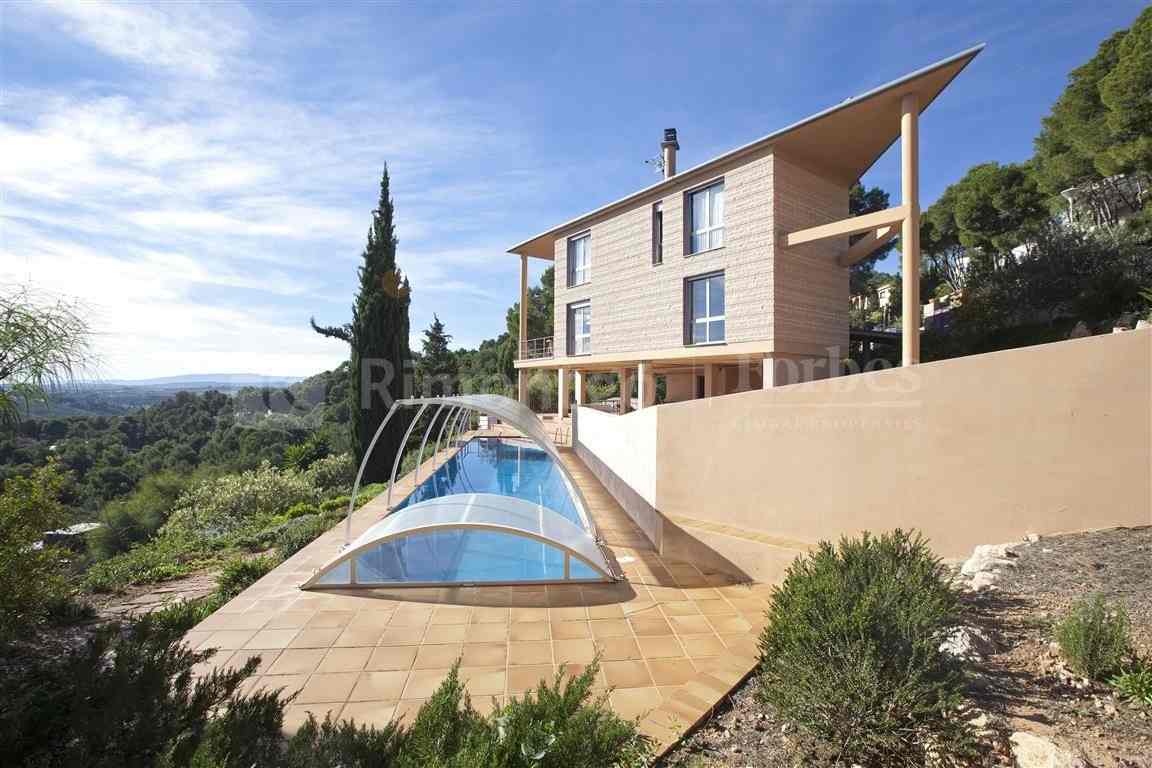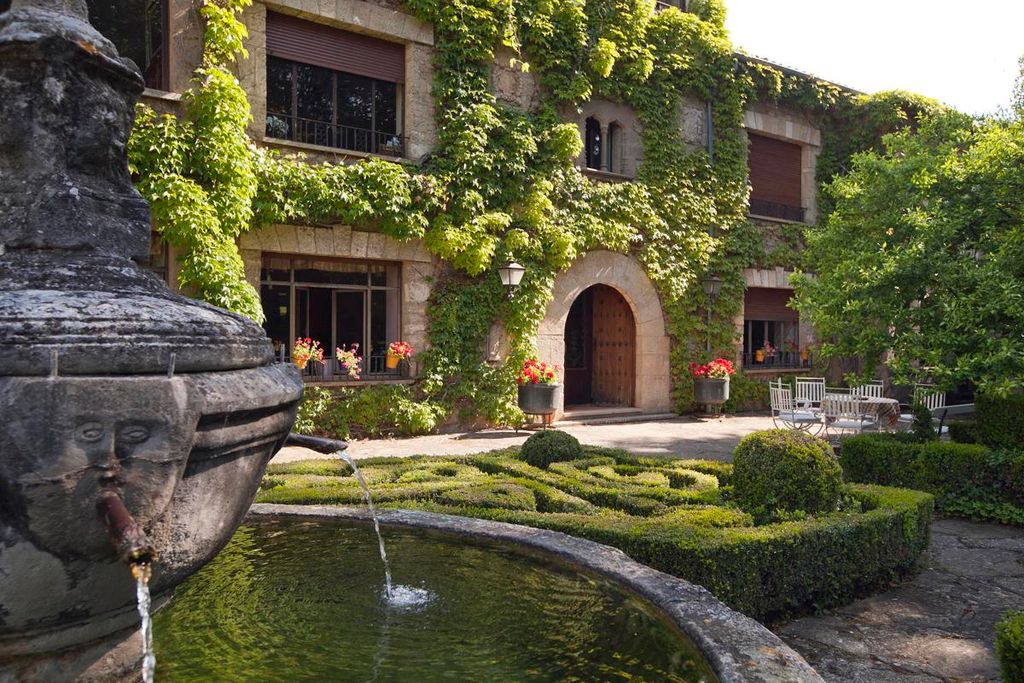When exploring international real estate opportunities, investors and expatriates should not overlook Spain as an intriguing option. LX has extended its reach beyond borders to establish valuable connections in Spain, recognizing the immense potential and opportunities that this European country offers in the market. Spain’s unique offerings, rich cultural heritage, and geographic advantages present an appealing choice for investors and expatriates.
“The Spanish real estate market is the sixth largest in the world and is known for its impressive diversity. The decisive factor for this is the great interest among private buyers and international investors. Attractive single-family homes, apartments, and typical Spanish country estates, fincas, are in high demand.”
In this article:
Luxury Real Estate in Spain
Spain offers a myriad of options that cater to discerning buyers seeking exclusive properties. Spain’s diverse landscapes, rich history, and vibrant culture make it an attractive destination for luxury real estate investments. Not only is the Spanish economy strong and growing, but its cost of commercial property is relatively low compared to other European countries. Spain is also a popular tourist destination, which means there is a demand for commercial space. The Spanish government also offers tax breaks and other incentives for foreign investors.

The luxury real estate market in Spain covers a wide price range. It depends on factors such as location, property size, amenities, and exclusivity. Prices for a luxury apartment may start at around $400K, and a home can range from $850,000 up to several tens of million dollars for high-end properties in sought-after areas.
When selecting a luxury property in Spain, lifestyle considerations play a vital role. Buyers can choose from beachfront properties, golf course communities, countryside estates, or cosmopolitan city residences. Each option offers unique experiences and amenities.
Main Areas for Luxury Real Estate in Spain
Spain offers a variety of prime locations for luxury real estate. Some of the most popular areas include:
- Costa del Sol: Known as the “Golden Coast,” this region in southern Spain is renowned for its upscale resorts, exclusive golf courses, and beachfront properties.
- Balearic Islands: Mallorca, Ibiza, and Menorca are highly sought-after destinations for luxury properties. These islands boast stunning Mediterranean landscapes, world-class marinas, and upscale amenities.
- Marbella: Located on the Costa del Sol, Marbella is synonymous with luxury living. Its glamorous reputation, upscale restaurants, high-end shopping, and luxury villas attract affluent buyers from around the world.
- Barcelona: This cosmopolitan city offers a mix of modern architecture, cultural attractions, and a vibrant lifestyle. Exclusive penthouses and upscale apartments can be found in prestigious neighborhoods such as Eixample, Sarrià-Sant Gervasi, and Pedralbes.
Spain Real Estate Network
LX Costa Rica opens a gateway to the world of real estate and luxury properties in Spain for our esteemed clients. We provide unparalleled access to a wide range of top-tier real estate agencies and professionals across Spain through our extensive network and strategic partnerships with Leading Real Estate Companies of the World and Luxury Portfolio. Our exclusive connections and collaborations within the Spanish real estate market demonstrate our commitment to excellence.
At LX, our LX specialists offer expert guidance and support throughout our clients’ buying, selling, or investment journey. Additionally, you can explore exclusive properties in Spain from our partners below:
Types of property in Spain
Luxury real estate in Spain encompasses various property types to suit different preferences. These include:
Luxury Apartments
Upscale apartments in Spain often feature modern designs, high-end finishes, panoramic views, and exclusive amenities such as gyms, spas, and concierge services. They are particularly popular in major cities like Barcelona and Madrid.
Luxury Villas
Spain is known for its stunning luxury villas, which often come with spacious layouts, private gardens, swimming pools, and breathtaking views. These properties are frequently found in prestigious coastal areas such as Marbella and Ibiza.
Townhouses
Townhouses are a good option for foreigners who want to have the space of a villa but the convenience of living in a Spanish city or town. They are typically located in gated communities, and they often come with amenities such as a swimming pool and parking.
Historical Properties
Spain also offers an array of historical properties, including castles, palaces, and renovated mansions, which combine rich heritage with luxurious living.
Commercial properties
Foreigners who want to run a business in Spain find commercial property to be a good investment. It can also serve as a viable means to obtain a Golden Visa, which grants a residence permit to foreigners who invest a certain amount of money in Spain. To qualify for a Golden Visa through commercial property investment, you must purchase a property worth at least €500,000 in a designated area and use it for commercial purposes. Additionally, you must retain ownership of the property for at least five years, and after that, you can apply for permanent residency in Spain if you have lived in the country for at least two years.
Land or “Fincas”
Land is a good investment for foreigners who want to build their own home in Spain. It can also be a good way to get a Golden Visa, following the same conditions described for the commercial properties above. “Fincas” are usually found in rural areas of Spain. When purchasing land, it’s important to consider the its location and size, zoning restrictions, and ecological matters for a successful future construction.
Requirements for foreigners to buy property in Spain
If you’re a foreigner considering buying property in Spain, it’s essential to familiarize yourself with the requirements and procedures involved. Spain has certain regulations in place to ensure a smooth and secure real estate transaction process for international buyers. Here are some key requirements to keep in mind:
1. Obtain a NIE Number:
- What it is: As a foreigner, you will need to obtain a Foreigner Identification Number (Número de Identificación de Extranjero or NIE) from the Spanish authorities. This unique identification number is necessary for any legal transactions, including property purchases.
- How to obtain: Through the Spanish consulate or embassy in your home country. If you are already in Spain, you can schedule an appointment at the nearest Foreigners’ Office (Oficina de Extranjeros) or police station (Comisaría de Policía).
2. Prepare Necessary Identification Documents:
- What you need: Foreigners are required to present a valid passport for identification. Ensure that your passport is up to date and valid throughout the entire transaction process.
3. Open a Spanish Bank Account:
- Why it’s advisable: It is advisable to open a Spanish bank account, as this will facilitate financial transactions related to your property purchase. Having a local bank account makes it easier to set up direct debits for utilities and other ongoing expenses.
4. Spanish Residency:
- When it’s necessary: While it is not mandatory to have Spanish residency to purchase property, it can offer certain advantages, such as access to healthcare and potential tax benefits. If you plan to spend an extended period in Spain, you may want to consider obtaining residency.
- How to obtain: Once in Spain, you’ll need to apply for your residency permit at the nearest Foreigners’ Office (Oficina de Extranjeros) or the local police station (Comisaría de Policía).
5. Hiring a Legal Representative:
- Why is it important: Engaging the services of a reputable Spanish lawyer or legal representative who specializes in real estate transactions is highly recommended. They will guide you through the legalities, help you understand the contracts and documentation, and ensure that all necessary steps are followed. Ideally, this representative should speak both Spanish and your language for easy communication.
6. Property Registration:
- Why to check: It is crucial to verify that the property you wish to purchase is correctly registered and has a valid title deed (escritura pública). Your legal representative will conduct due diligence to confirm the property’s ownership status and any existing encumbrances or debts.
7. Taxes and Fees:
- Which ones: As a property buyer in Spain, you will be responsible for paying various taxes and fees. These can include Value Added Tax (VAT) or Transfer Tax, Stamp Duty, Notary fees, and Property Registry fees. It’s important to factor these costs into your budget when considering a property purchase.
8. Mortgage Financing:
- Requirements: If you plan to finance your property purchase with a mortgage, be aware that the process may differ for non-residents. Spanish banks typically have specific requirements for foreigners, including providing proof of income, employment status, and financial stability.
9. Notarial Deed:
- What it is: The final step in the property purchase process is signing the escritura pública, or notarial deed. This legal document confirms the transfer of ownership and is signed before a notary public.













